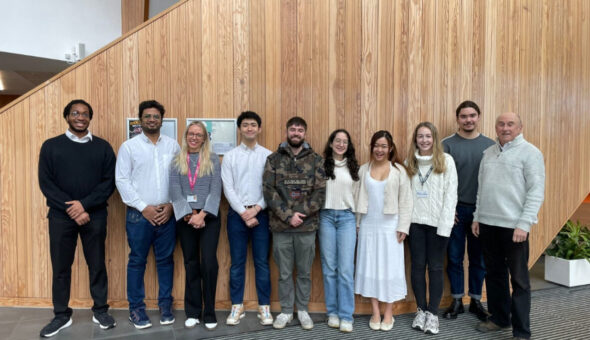 Last week I attended the World Congress of Psychiatric Genetics in Singapore! I was invited to present on research we conducted investigating associations between poor housing quality and children’s speed of biological (epigenetic) ageing. We conducted this research with our collaborators at Harvard Medical School, which we were able to meet for the first time in person at the conference!
Last week I attended the World Congress of Psychiatric Genetics in Singapore! I was invited to present on research we conducted investigating associations between poor housing quality and children’s speed of biological (epigenetic) ageing. We conducted this research with our collaborators at Harvard Medical School, which we were able to meet for the first time in person at the conference!
The conference was excellent, and as well as being excited to present my own research there, I was equally excited about listening to all the latest developments in psychiatric genetics! A few examples of some presentations I found particularly impressive was the world’s largest genetic study of depression to date! By including a more diverse range of ancestries in their sample, they were able to detect an additional 200 genes associated with depressive symptoms that had not yet been previously identified! This is a huge advancement in the genetics of depression and it was incredible to listen to the authors explain their findings.
Further examples include presentations on understanding the heterogeneity in the symptomology of depression, and how we can understand depressive aetiology and treatment further by splitting patients into subgroups of varying symptom profiles. This is looking like a particularly promising approach for increasing treatment efficacy.
Additionally, there was fascinating research presented on the genetics of migratory behaviour and the authors identified shared genetic architecture with bipolar disorder and autism.
My colleagues also gave excellent presentations during their symposium, including Dr Vilte Baltramonaityte on brainAge and Professor Esther Walton who chaired the session.

I would like to thank the Centre for Learning and Teaching for awarding me a Student as Producers grant so that I could travel to Singapore and attend the conference! I would also like to thank Guarantors of Brain for awarding me, also enabling me to attend and present at the conference!

Post by: Faye Sanders. AAPS CDT Student, Department of Mechanical Engineering
Respond


